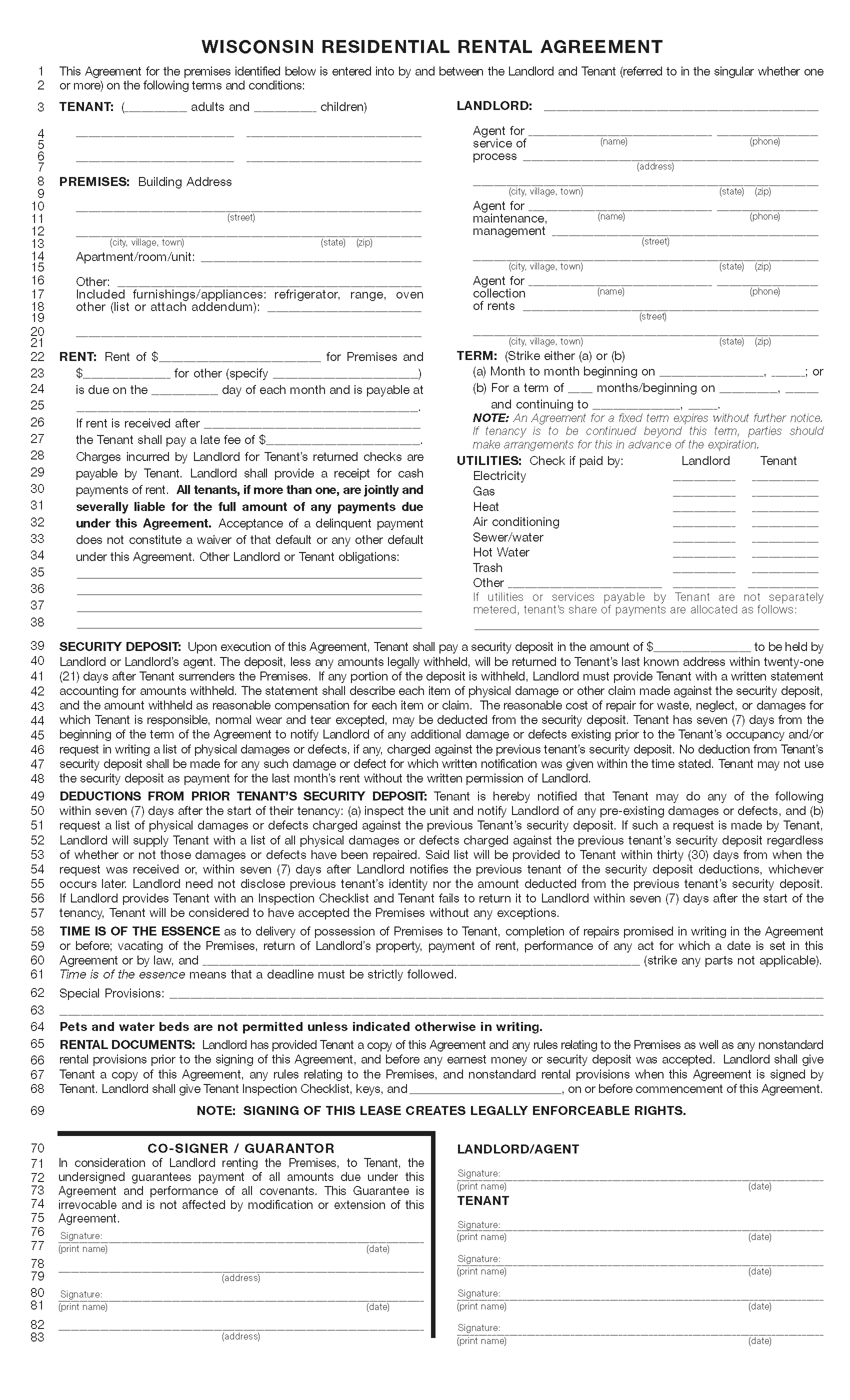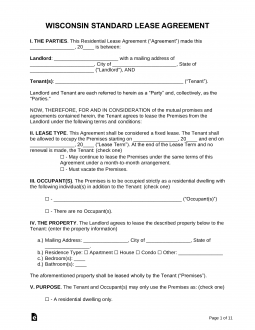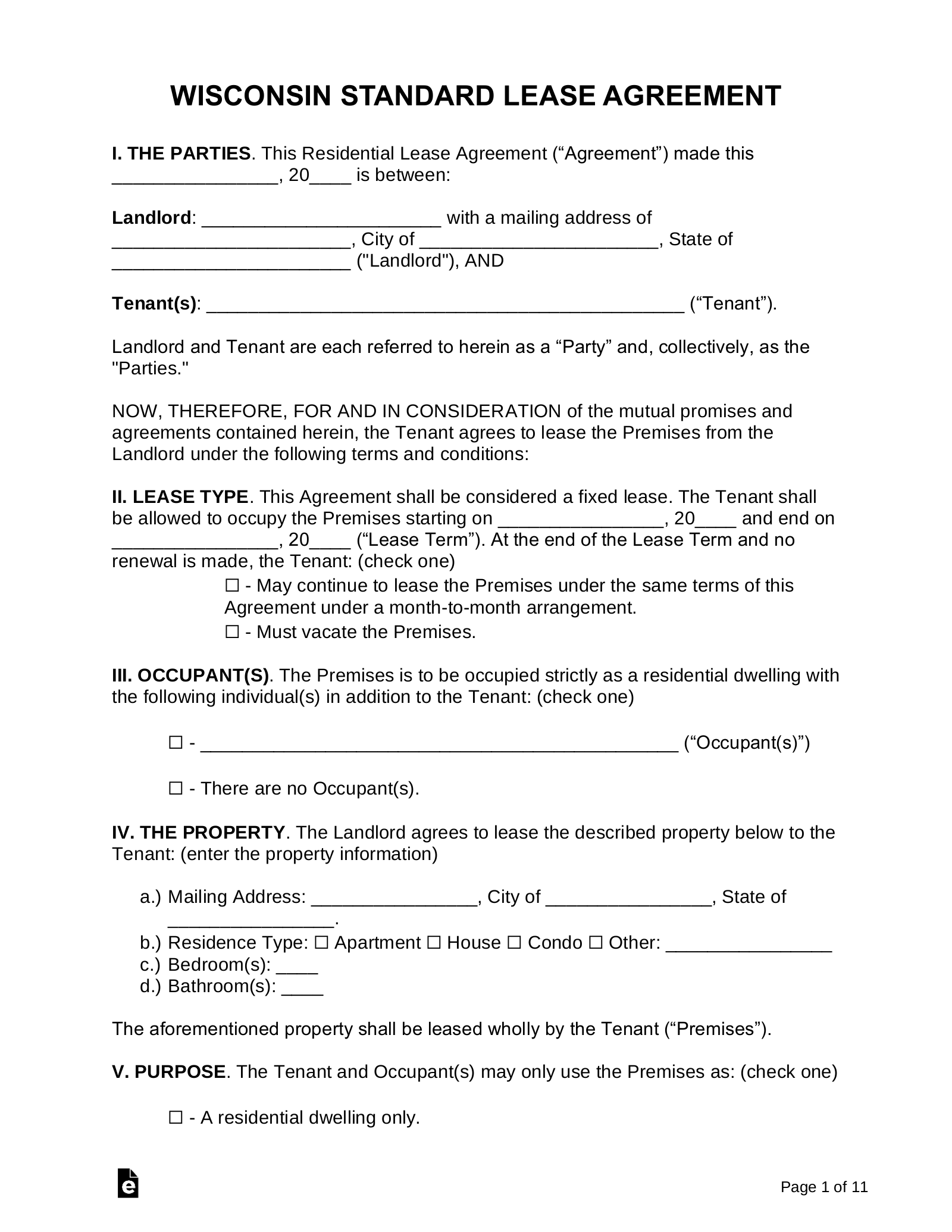Updated August 08, 2023
A Wisconsin standard residential lease agreement is a legal document that outlines the terms of a rental arrangement between a landlord and tenant. Before a lease is signed, the landlord will commonly check the tenant’s credit report and verify their income by requiring a rental application to be completed and signed.
After the landlord approves their credentials, negotiations will begin on the landlord and tenant responsibilities in addition to the rent amount. Once a verbal agreement has been made, the lease may be written and signed. The average term for a standard lease is one (1) year and after both parties have signed becomes legally binding until the end of its term.
Move-in Checklist (§ 134.06) – If the landlord accepts a security deposit, this checklist must be given to the tenant within seven (7) days to allow them to write down any existing damage or defects in the premises.
Laws – Chapter 704 (Landlord & Tenant)
Handbook – Landlord-Tenant Guide (PDF)
Other Versions (1)
 Wisconsin Standard Residential Lease Agreement – Version 2
Wisconsin Standard Residential Lease Agreement – Version 2
Download: PDF


